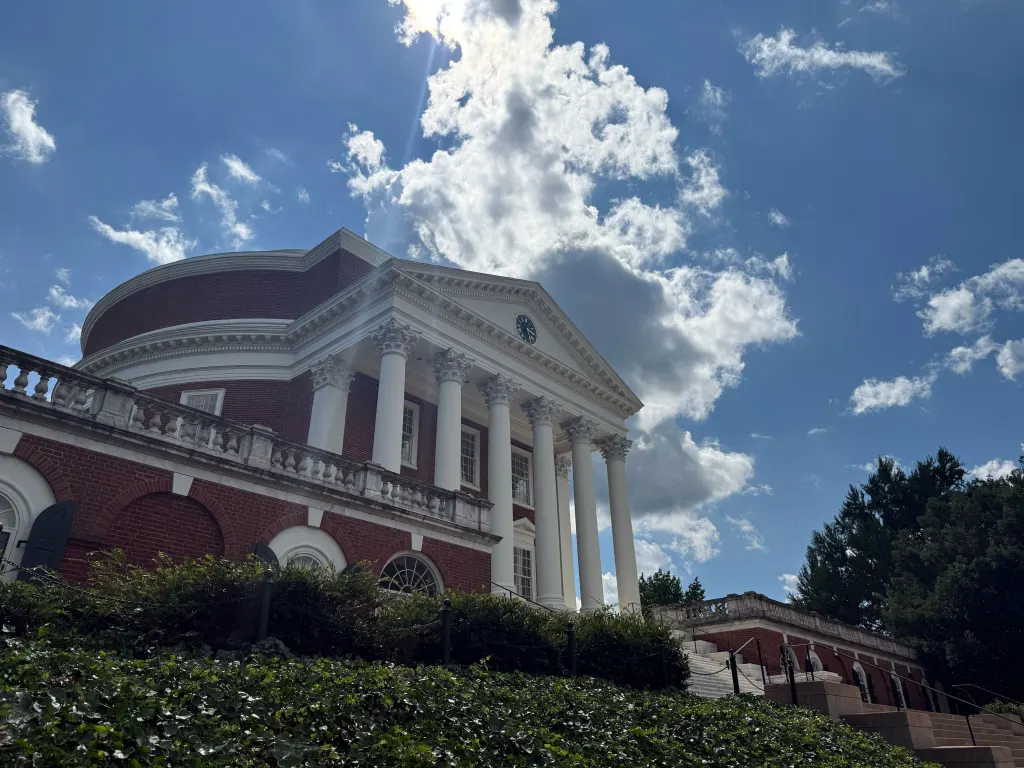Copyright Norfolk Virginian-Pilot

Can 12 members of a state Senate committee speak for the entire General Assembly? That question was at the heart of Thursday’s hearing in the Supreme Court of Virginia in a case that could determine the makeup of the governing boards at three Virginia colleges. Lawyers in the case argued over whether the Senate Privileges and Elections Committee has the authority to reject Gov. Glenn Youngkin’s nominations to the boards of George Mason University, the University of Virginia and Virginia Military Institute. Since June, the Democratic-led committee has refused 22 of Youngkin’s picks for the schools’ boards. On Thursday, the high court heard Republicans’ appeal to a July decision by a Fairfax County judge who sided with Senate Democrats and said the committee’s vote was sufficient to block nominations. “The vote of eight committee members cannot be a refusal,” said Kevin Gallagher, solicitor general of Virginia, who argued on behalf of Attorney General Jason Miyares. Following the hearing, Sen. Louise Lucas said she was optimistic, given the justices’ questions and comments. As president pro tempore of the Senate, the Portsmouth Democrat leads her party’s effort to stop the nominees from serving. “I feel like we have a strong position,” said Lucas. It’s unclear when the court will issue a ruling — it could take up to three months, Democratic leaders said. Under Virginia law, a governor appoints dozens of members to college governing boards each year. But the picks are subject to confirmation by the General Assembly. In June, the Democratic-led Senate Privileges and Elections Committee voted 8-4, along party lines, not to confirm eight of Youngkin’s nominees. Among them was former Republican Attorney General Ken Cuccinelli, whom Youngkin had appointed to the UVA board. Democrats took the vote around the same time then-UVA president Jim Ryan resigned under pressure from federal authorities and GMU president Gregory Washington came under federal scrutiny, accused of violating civil rights laws. Youngkin and Miyares challenged the committee’s vote, saying the full General Assembly has to confirm or deny a governor’s appointment to a board. Youngkin and Miyares directed the governor’s appointees to continue serving. In response, Senate Democrats sued to block the board members from serving. In July, Fairfax Circuit Court Judge Jonathan Frieden sided with the Democrats and issued a preliminary injunction to stop the eight board members from taking their positions. Afterward, the Senate committee voted to refuse 14 more Youngkin appointments — six at GMU, four at UVA and four at VMI. That left GMU with just six sitting board members, not enough to establish a quorum and conduct a meeting. Miyares appealed the decision to the Supreme Court, and the seven justices heard arguments Thursday. Gallagher, the lawyer for the Republicans, said the prerogative of a small handful of senators had prevented the entire legislature from voicing its opinion. “It should take both houses to refuse” a board appointment, Gallagher said. But Justice Wesley G. Russell Jr. questioned that logic, asking, if the Senate committee struck down the nominations, how is that not a refusal? While it takes both chambers to approve a bill, just one committee can defeat a bill. Gallagher repeated that it takes both chambers to reject a nomination. An added wrinkle to the case is its timing. The Senate committee cast its vote in June, outside of the normal winter session when the entire body convenes. Russell asked the Democrats’ lawyer, Mark Stancil, whether the remaining 28 members of the Senate had been denied the right to vote on the topic. No, Stancil said, noting that the Senate was in session Thursday. If the Senate wanted to take up the matter of college board members, it could, he said. Stancil argued that Republicans are trying to negate the will of the Senate. He said the Senate has the right to craft its own rules and that the committee followed them. He pointed out that a Senate committee has the right to vote no or take no action on a bill or appointment. The original eight nominees the Senate Democrats voted down included Cuccinelli, who was elected attorney general in 2009 and lost the 2013 election for governor to Democrat Terry McAuliffe. The committee rejected four appointees to the George Mason board — former Virginia Secretary of Commerce and Trade Caren Merrick; Charles J. Cooper of Bonita Springs, Florida, who served as assistant attorney general for the Office of Legal Counsel under President Ronald Reagan; William D. Hansen, vice president of the Virginia State Board of Education and president and CEO of Building Hope, a nonprofit serving charter schools; and Maureen Ohlhausen, who served as acting Federal Trade Commission chairman under President Donald Trump. Youngkin’s VMI picks that Democratic senators voted down were Jonathan Hartsock, deputy chief of staff for Rep. Ben Cline, R-6th; Stephen Reardon, a Richmond attorney; and José J. Suárez, chief executive officer of a Florida consulting firm. Democrats hope they prevail in court and that their nominee for governor, Abigail Spanberger, wins next week’s election. Then she would have the authority to make new nominations in January. Carl Tobias, a law professor at the University of Richmond, said the Democrats are probably correct on the merits of their argument, that Senate rules allow for the Privileges and Elections Committee to reject a governor’s appointee. But he said there are procedural arguments that could trip up their case. In a brief, Miyares’ office made a number of procedural arguments, saying the Fairfax judge who issued the injunction lacked jurisdiction; the plaintiffs are suing the wrong defendants; and they’re using the wrong cause of action. If Democrats are interested in removing board members, they should use a process called quo warranto, the Attorney General’s office said, in which a citizen can question the authority of a person in public office, and the case is decided by a jury trial. Stancil, the Democrats’ lawyer, said that if they were to take that route, they would have to file a different case against each nominee — but they shouldn’t have to. While Virginia’s Supreme Court leans conservative, Tobias said, it isn’t a MAGA court.



